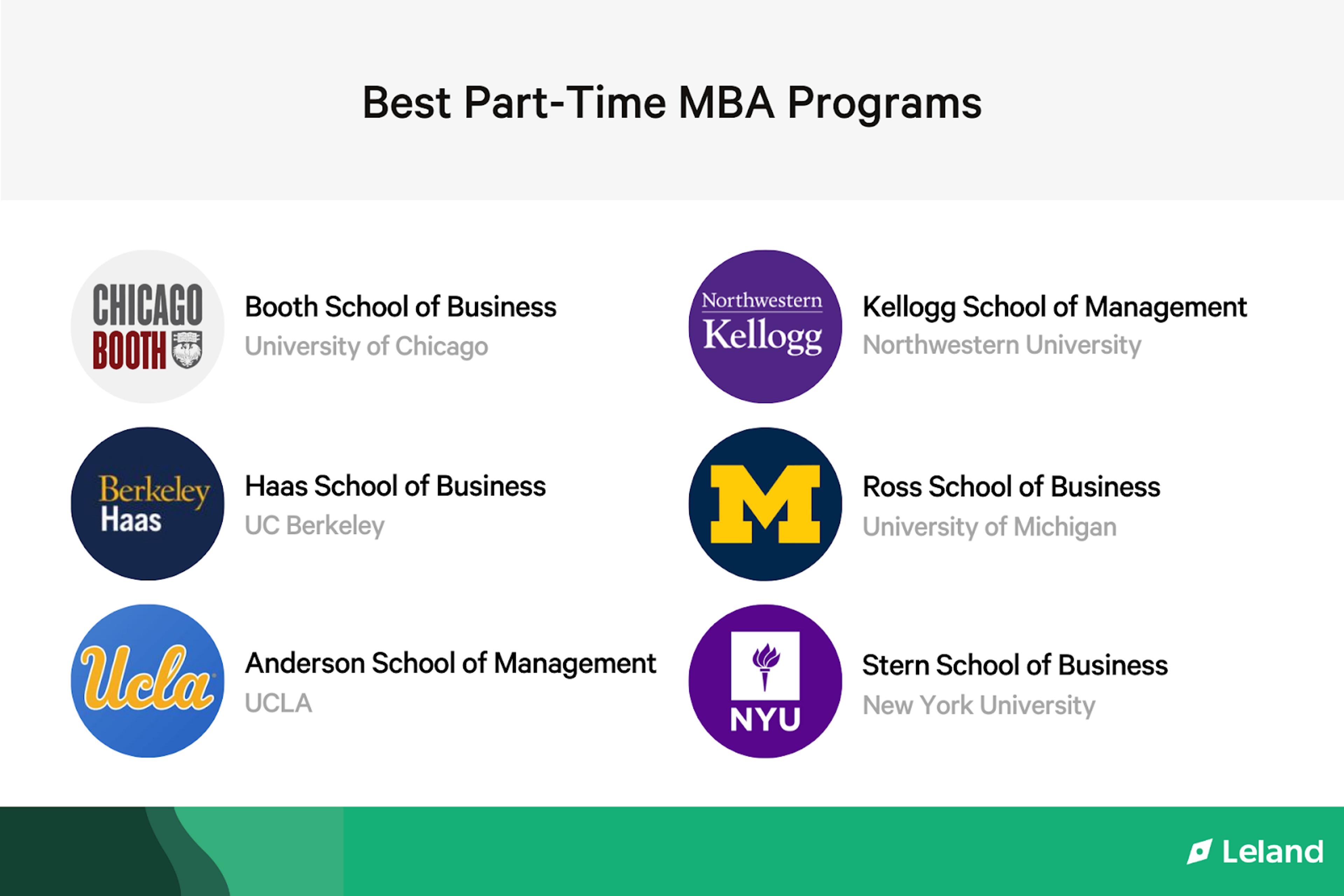Part-Time vs Full-Time MBA: Which Path Will Propel Your Career Further?
Master of Business Administration (MBA) programs are designed to equip individuals with essential business skills and knowledge necessary for leadership roles in various industries. An MBA curriculum typically covers subjects such as finance, marketing, operations, and strategy. Whether pursued full-time or part-time, these programs provide students with opportunities to engage in networking, internships, and hands-on projects that enrich their learning experience. Moreover, students can choose between online and on-campus formats, tailoring their education to fit their lifestyle. For example, a busy professional may find a short, intensive online program more suitable for maintaining work-life balance.
Importance of Choosing the Right Path
Selecting the right MBA program can significantly impact one’s career trajectory. A well-aligned program can lead to:
- Enhanced job prospects
- Potential salary increases
- Valuable network connections
Ultimately, whether a full-time or part-time MBA is pursued, it’s crucial for aspiring candidates to evaluate their career goals, personal commitments, and desired outcomes to make an informed decision. This foundational choice sets the stage for future success in the competitive business landscape.
Part-Time MBA Benefits

Flexibility in Schedule
One of the standout advantages of pursuing a part-time MBA is the flexibility it offers. This option caters specifically to working professionals who are managing jobs, family commitments, and personal interests. For instance, many programs schedule classes in the evenings or on weekends, allowing students to balance studies with their existing responsibilities.
- Evening and Weekend Classes: Attending classes outside of regular working hours enables students to maintain their jobs while pursuing their degree.
- Control Over Pace: Many part-time MBA programs allow students to take a lighter course load during busy periods, reducing stress and enhancing learning.
This flexibility can be vital for parents, individuals with demanding careers, or those who simply wish to maintain a balanced lifestyle while furthering their education.
Opportunity to Gain Work Experience
Another significant benefit of the part-time MBA format is the opportunity to accumulate valuable work experience while studying. Unlike full-time students who often leave the workforce, part-time students can apply their learnings in real-time within their current roles.
- Applying Knowledge Immediately: Concepts learned in class can be implemented directly at work, enhancing job performance and earning potential.
- Employer Sponsorship: Many employers value employee development; thus, they may offer to cover part or all of the tuition fees, further easing financial burdens.
This combination of work experience and ongoing education positions part-time MBA students for career advancement without the pressure of leaving the job market.
Part-Time MBA Drawbacks
Longer Duration to Complete
While the flexibility of a part-time MBA program is certainly appealing, one prominent drawback is the extended time frame required for completion. Most part-time students typically take between three to five years to earn their degree, compared to the two years needed for full-time programs.
- Time Commitment: This longer duration can delay students’ career progression, especially if they are seeking promotions or new opportunities.
- Personal Sacrifice: Additionally, stretching the program out may lead to burnout as students juggle coursework with their professional responsibilities and personal lives.
This extended timeline could also affect the relevancy of the skills learned, potentially leaving graduates less competitive compared to their full-time counterparts who complete their studies in a more condensed and immersive environment.
Limited Networking Opportunities
Another downside of the part-time format is the limited networking opportunities. Since many part-time students are working professionals, their interactions with classmates may be less frequent and less robust than those in full-time programs.
- Fewer Interactions: Classes are often held at night or on weekends, which can restrict social activities and networking events that typically accompany full-time programs.
- Building Connections: This reduced interaction can hinder relationship-building with peers and industry professionals, which is vital for career development and future job prospects.
In summary, while a part-time MBA can offer flexibility, students must consider the potential trade-offs in terms of duration and networking.

Full-Time MBA Benefits
Immersive Learning Experience
One of the standout advantages of a full-time MBA program is the immersive learning experience it offers. Students fully engage in their education, devoting significant time to various subjects, including finance, marketing, and organisational behavior.
- Daily Interaction: Full-time students typically attend classes every weekday. This routine allows them to absorb knowledge more deeply and engage actively with peers and professors.
- Hands-On Learning: Programs often incorporate case studies, group projects, and internships, providing practical experience that allows students to apply their learning in real-world scenarios.
Moreover, the intense nature of full-time study helps cultivate a sense of camaraderie among classmates who often become lifelong connections.
Stronger Networking Opportunities
Networking opportunities are significantly enhanced within a full-time MBA setting. With students often sharing similar professional goals, fostering relationships becomes a natural part of the experience.
- Access to Professionals: Full-time programs typically host guest speakers, company representatives, and networking events, connecting students to industry leaders and potential employers.
- Collaborative Projects: Group projects further enhance the chance to network, as students collaborate with peers who can become valuable contacts in the future.
These robust networking opportunities can lead to career advancements, high-paying job offers, and successful business partnerships. Overall, a full-time MBA not only equips students with knowledge but also opens doors to exciting professional opportunities.
Full-Time MBA Drawbacks
Financial Investment
While the benefits of a full-time MBA can be substantial, the financial investment required is a significant drawback for many prospective students. The cost of tuition for a full-time MBA program typically ranges from $43,500 to $52,500, not including additional expenses for books, supplies, and living costs.
- High Upfront Costs: This hefty price tag can lead to substantial student loan debt, which some may struggle to repay.
- Limited Scholarships: Although some programs offer scholarships, the competition is fierce, and not all students will qualify.
Choosing to invest this amount can be scary, especially if the return on investment isn’t immediately apparent.
Career Interruption
Another critical drawback of pursuing a full-time MBA is the career interruption it can entail. Unlike part-time students who can maintain their jobs while studying, full-time candidates often leave the workforce for 18 to 24 months.
- Loss of Income: This break from earning can be financially challenging, especially if students have existing financial commitments, such as mortgages or family expenses.
- Re-entering the Job Market: Graduates may find it intimidating to re-enter a workforce they’ve been away from, particularly in fast-moving industries where changes occur rapidly.
For many, the balance of benefits and drawbacks weighs heavily on the decision to pursue a full-time MBA.
Factors to Consider When Choosing Between Part-Time and Full-Time MBA
Personal Commitments
When deciding between a part-time and full-time MBA, personal commitments play a crucial role in determining the best fit. Individuals with significant family responsibilities, such as raising children or caring for aging parents, may find part-time programs more accommodating.
- Flexible Scheduling: Part-time MBA programs typically offer classes during evenings and weekends, allowing students to balance their studies with personal obligations.
- Time Management: It’s essential to evaluate your daily schedule and commitments; a full-time program requires a higher time dedication that can strain personal life.
For instance, someone actively involved in their community or with a demanding job might appreciate the ability to pursue their education without sacrificing existing commitments.
Career Goals
Your career aspirations should also guide your decision. Identify whether your primary goal is to advance within your current organization or pivot to a new field.
- Advancement Opportunities: Full-time MBAs often cater to those looking to break into senior management roles or consulting positions, as many employers prefer full-time graduates.
- Skill Enhancement: If you aim to apply new skills in your current job, a part-time MBA may be more beneficial, allowing you to experiment with new strategies at work while you study.
Consider your long-term ambitions carefully to ensure that your choice aligns with where you see yourself in the future.

Success Stories: Part-Time MBA Graduates
Testimonials from Alumni
Many part-time MBA graduates have shared inspiring testimonials about their experiences. For instance, Sarah, a marketing director, notes, “Balancing work and study was challenging, but the flexibility of my part-time MBA allowed me to apply what I learned immediately in my role. The professors were incredibly supportive, and I felt part of a community even while juggling multiple responsibilities.”
- Networking Opportunities: Alumni often highlight the powerful connections formed with classmates, citing how these relationships have led to mutual support and even job referrals in their respective fields.
Achievements in the Workplace
The achievements of part-time MBA graduates speak volumes about the program’s efficacy. Many have successfully transitioned to higher-level positions or changed industries altogether.
- Promotion Success Stories: Graduates report an average salary increase of 29% after completion, with many moving into senior management roles or specialized functions, such as finance or consulting.
- Real-World Applications: The ability to implement fresh knowledge from the curriculum into daily tasks has allowed graduates like John, an HR manager, to innovate HR policies, significantly improving team engagement.
These success stories illustrate the transformative impact of a part-time MBA on careers and personal development.

Success Stories: Full-Time MBA Graduates
Testimonials from Alumni
Many full-time MBA graduates echo similar sentiments about their transformative journeys. For instance, Mark shared, “Enrolling in a full-time MBA was one of the best decisions I ever made. The immersive experience changed my perspective on leadership and teamwork.” He highlighted the supportive environment and diverse learning opportunities that allowed him to grow both personally and professionally.
- Building Lifelong Connections: Graduates often emphasize the friendships forged during intense group projects, which can lead to lasting professional networks.
Career Advancements Post-MBA
The career advancements of full-time MBA graduates are noteworthy. Many find themselves in positions they had not previously envisioned.
- Prominent Roles: For example, Lisa landed a senior consulting role shortly after graduation, with a remarkable salary increase of 42%.
- Career Transition: Graduates transitioning from fields like education to finance commonly report starting salaries around $125,000, significantly higher than before.
These success stories underscore the robust impact of a full-time MBA on career trajectories, enabling graduates to achieve their aspirations and excel in various industries.





